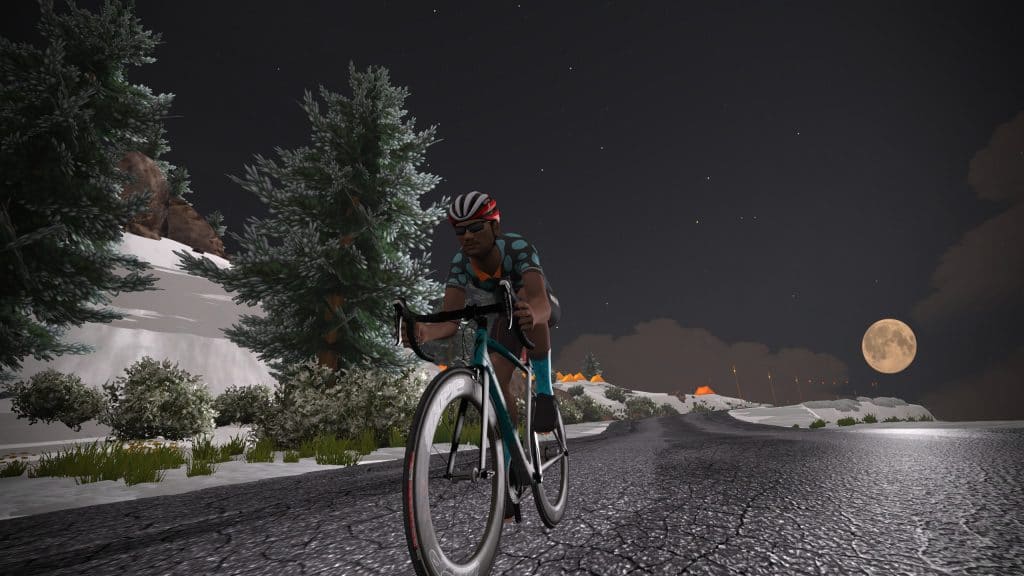The Tron bike is the most prized ride in Zwift: it’s fast, eye-catching, and difficult to earn.
So of course, you want it in your garage (where it’s called the “Zwift Concept Z1” by the way). But you also want to make obtaining it as painless as possible. There’s no getting around the fact that you’ll have to climb 50,000 meters to earn the Tron bike, unless you’re willing to cheat. But are there ways to do that climbing more efficiently, so your watts result in as much elevation as possible?
Absolutely. Read on!
The Four Climbs
Traditionally, Zwifters have focused on four different Watopian climbs when working toward their Tron bike. Watopia is usually chosen because this map is always available, it has long/difficult climbs, and there are numerous climbs to choose from.
We did some tests with a 75kg rider up these four climbs, where the rider pedaled at 300 watts whenever pedaling was required. Here are the results.
Watopia Hilly Repeats
The Hilly KOM forward climb was Watopia’s first, and many a Tron bike has been earned on it. It’s a short effort (2-3 minutes for most), and riders simply do repeats: ride up, flip a u-turn to ride down, then flip a u-turn and do it all over again.
This climb has the advantage of being easily accessible (the road isn’t level-locked and you begin your ride nearby) as well as short–it’s not an intimidating mountain like Alpe du Zwift.
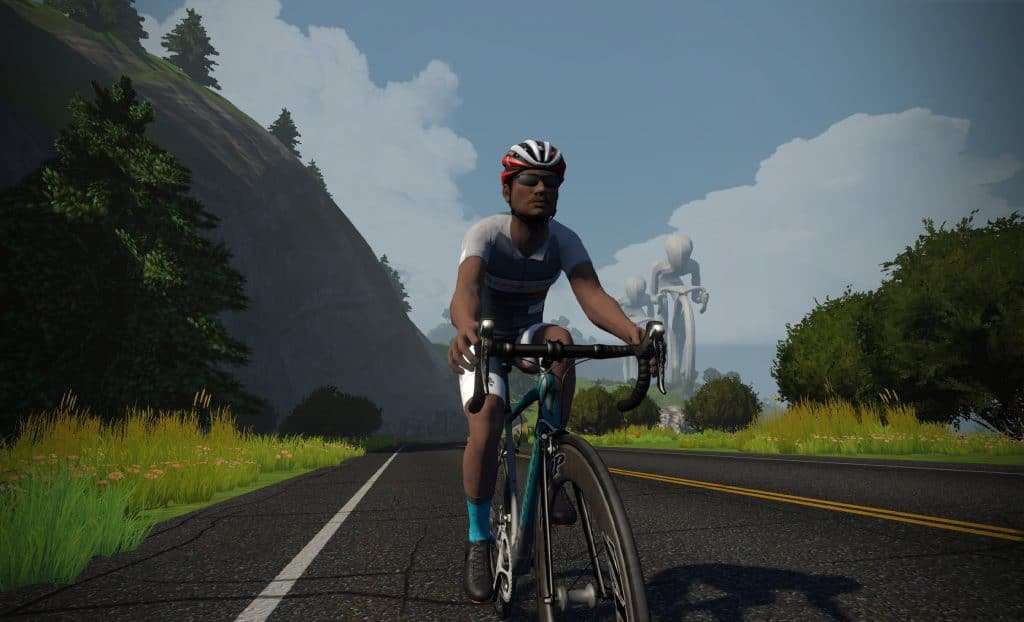
In our test, we road up the hill at 300 watts (4 w/kg), turned around at the KOM banner, got up to speed, then stopped pedaling for the descent.
Test result: this hill repeat required 242 average watts for 230 seconds to climb 51m
Epic KOM “Bowl Hack”
There’s a “bowl” section at the end of the Epic KOM where riders have tried to “cheat” a bit by using gravity and inertia to do some of the climbing.
The easiest way to find this section is to ride the forward Epic KOM, then turn around once you hit the banner at the top. You can coast down until the road turns up, then begin pedaling once your rider slows. Pedal to the top of that small rise, turn around, descend, then pedal up to the KOM banner where you turn around and do it all again. Lots of coasting, right? Seems easy!
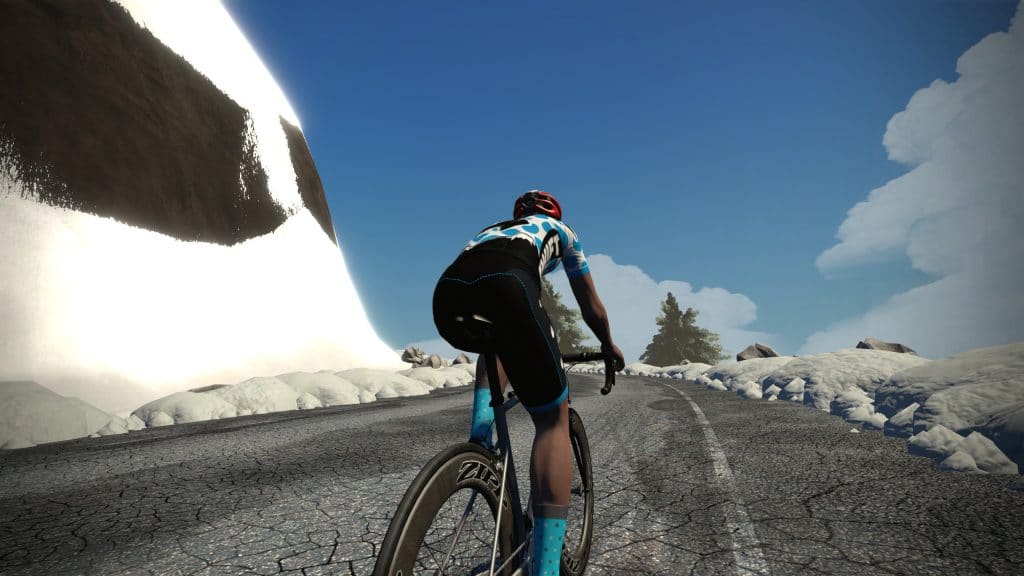
We tried to be as efficient as possible in our tests, only pedaling on the descents to get us up to 30km/hr, then coasting the rest of the way. And when the climbs hit we would coast until we dropped below 30km/hr, then begin pedaling. All pedaling was done at 300 watts (4 w/kg).
Test result: this hill repeat required 254 average watts for 395 seconds to climb 85m
Trekking to the (Radio) Tower
The radio tower “bonus climb” atop the Epic KOM is very steep, so it seems like a brilliant place for elevation seekers. You won’t move fast up the steep road (average gradient is 14%!) but you’ll tick those meters off quickly.
Keep in mind you have to ride up the Epic KOM first, so getting to this climb takes time and effort.
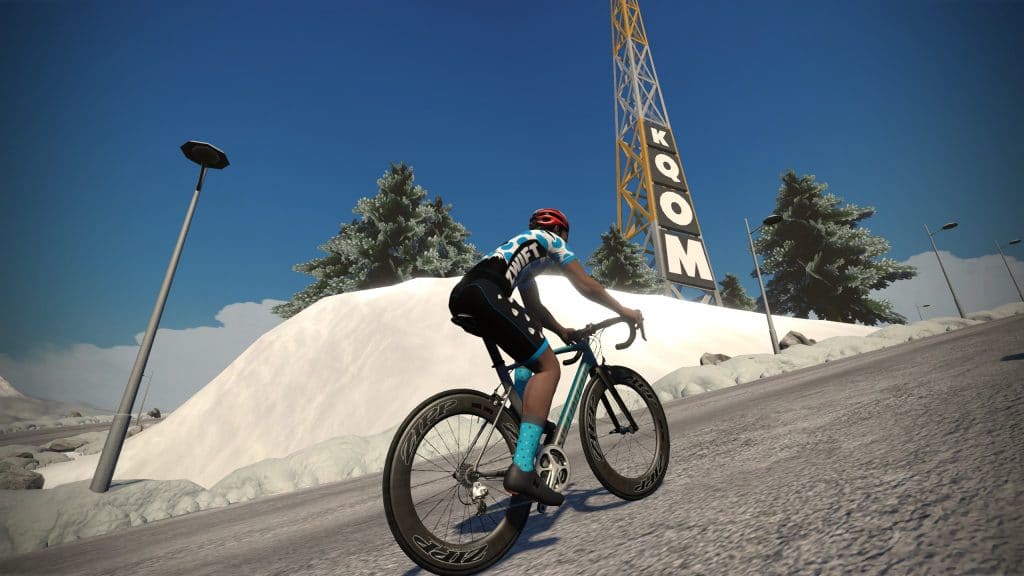
Test result: this hill repeat required 259 average watts for 480 seconds to climb 148m
Alpe du Zwift
By far the biggest climb in Watopia, Alpe du Zwift is a solid hour-plus effort for most riders. The fairly steady grade will have you racking up the elevation quickly, but keep in mind you have to ride out to the Alpe before you can climb it, which makes this approach less efficient in terms of overall time requirements.
Additionally, the Alpe is only accessible to level 6+ riders, unless you access it with others.
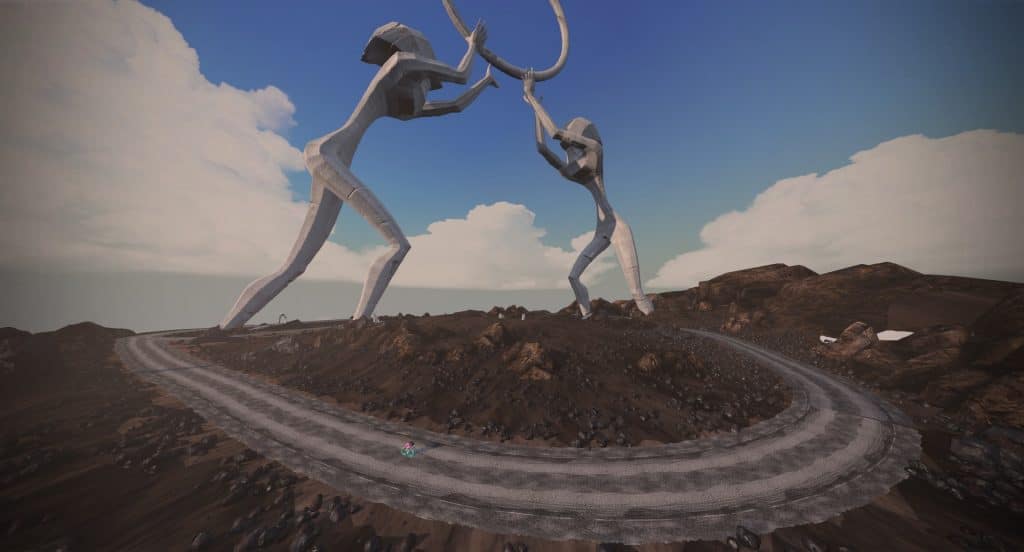
Test result: this hill repeat required 245 average watts for 3660 seconds to climb 1035m
Results
Looking at the results of our tests for the four climbs above, we can calculate which gets you the most meters of climbing for the least amount of work (watts). All we have to do is convert the hill repeat effort to kilojoules, then divide that by the number of meters the effort got us. Presto! This tells us how many kilojoules per meter we got–the “cost” of each climb. (Lower is better.)
| Avg Watts | Ride Time (Seconds) | Kj | Meters | Kj/Meter | |
| Hilly | 242 | 230 | 56 | 51 | 1.09 |
| Epic KOM | 254 | 395 | 100 | 85 | 1.18 |
| Radio Tower | 259 | 480 | 124 | 148 | 0.84 |
| Alpe | 245 | 3660 | 897 | 1035 | 0.87 |
These results show that the Radio Tower is the “easiest” way to accumulate elevation.
The Big But
But wait. Zwifters don’t ride in a laboratory! We have to get to the climb first, and that needs to be included in the calculations.
So we ran the numbers to learn which of the four climbs above is the most efficient when we talk about starting at the spawn point, riding to the climb, then doing repeats until our ride time hits ~60 minutes.
You’ll notice the increases the per meter “cost” of every climb, which shouldn’t be surprising.
Final Results (including Lead-In)
| # of Repeats | Kj | Meters | Ride Time (Minutes) | Kj/Meter | |
| Hilly | 15 | 862 | 770 | 59 | 1.12 |
| Epic KOM | 5 | 1048 | 861 | 63 | 1.22 |
| Radio Tower | 4 | 1061 | 1028 | 63 | 1.03 |
| Alpe | 1 | 1138 | 1142 | 63 | 1.00 |
As you can see, climbing the Alp (using the Road to Sky route) is the most efficient way to accumulate elevation. The Radio Tower comes in 2nd, 3% less efficient. Watopia Hilly is 3rd, 12% less efficient. And the Epic KOM “Bowl Hack” is in last place at 22% less efficient.
If you extrapolate these numbers out to, say, a 90-minute ride, the rankings and % difference between each stay roughly the same.
So there you have it. Going for a 60-90 minute ride and want to get the most meters you can for your effort? Hit the Alpe! Ride the Road to Sky route 44 times and you’ll have your Tron bike.
